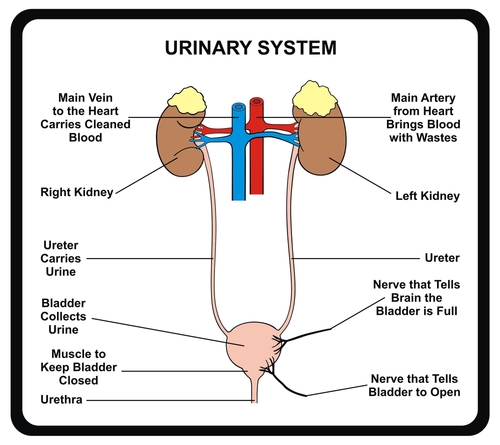
Understanding the Intricacies of the Urinary System: Its Main Components and Functions
The urinary system, also known as the renal system, is a complex and vital network within the human body responsible for regulating and maintaining various essential functions, primarily centered around waste elimination and fluid balance. Comprised of several distinct components, this intricate system plays a pivotal role in maintaining overall health. In this comprehensive article, we will explore the main components of the urinary system, their functions, and the critical role they play in the body’s overall homeostasis.
The Main Components of the Urinary System
The urinary system consists of several key components, each with its unique role in the process of urine formation, storage, and elimination. The primary components include:
1. Kidneys
The kidneys are the central and most critical organs of the urinary system. Humans typically have two kidneys, one on each side of the spine, located in the upper abdominal cavity, just below the ribcage. The kidneys act as natural filters, processing blood to remove waste products and excess substances, while simultaneously regulating fluid and electrolyte balance. Key functions of the kidneys include:
- Filtration: The kidneys filter approximately 120 to 150 quarts of blood daily, extracting waste products, such as urea, creatinine, and excess ions, while retaining essential substances like water and electrolytes.
- Reabsorption: The filtered substances, particularly glucose, sodium, and water, are selectively reabsorbed back into the bloodstream to maintain overall balance.
- Secretion: The kidneys also secrete certain substances, such as hydrogen ions and potassium ions, into the urine to further regulate the body’s pH and electrolyte levels.
- Hormone Production: The kidneys produce and release hormones like erythropoietin (stimulates red blood cell production) and renin (regulates blood pressure).
2. Ureters
Ureters are narrow, muscular tubes that connect each kidney to the urinary bladder. Their primary function is to transport urine from the kidneys to the bladder using peristaltic contractions. This unidirectional flow ensures that urine doesn’t flow back into the kidneys and maintains a one-way path for waste elimination.
3. Urinary Bladder
The urinary bladder is a hollow, muscular organ situated in the pelvis. Its primary function is to store urine until it reaches a sufficient volume for elimination. The bladder’s walls expand to accommodate urine, and when it’s time to empty, it contracts to expel urine through the urethra.
4. Urethra
The urethra is the final component of the urinary system, responsible for conducting urine from the bladder to the external environment for elimination. In males, the urethra also serves the dual function of transporting semen during ejaculation.
Functions of the Urinary System
The urinary system plays several critical roles in maintaining homeostasis and overall health:
1. Filtration and Waste Removal
The kidneys filter waste products and excess substances from the bloodstream, preventing the buildup of harmful toxins. These waste products are then eliminated from the body through urine.
2. Fluid and Electrolyte Balance
By selectively reabsorbing water and electrolytes, the kidneys help regulate the body’s fluid balance and electrolyte concentrations, ensuring that blood pressure and pH levels remain within a narrow, healthy range.
3. Blood Pressure Regulation
The kidneys produce and release renin, a hormone that plays a key role in regulating blood pressure. Renin helps control blood volume by influencing the constriction or relaxation of blood vessels.
4. Red Blood Cell Production
Erythropoietin, another hormone produced by the kidneys, stimulates the production of red blood cells in response to low oxygen levels, ensuring adequate oxygen transport to tissues.
5. Acid-Base Balance
The secretion of hydrogen ions and reabsorption of bicarbonate ions by the kidneys help maintain the body’s acid-base balance, keeping blood pH within a narrow range.
Conclusion
The urinary system is an intricate and indispensable network of organs and structures that perform vital functions essential for the body’s overall health and homeostasis. From waste elimination and fluid balance to blood pressure regulation and hormone production, each component of this system plays a specific role, contributing to the maintenance of a healthy and functional body. Understanding the main components and functions of the urinary system underscores its significance in sustaining human life and well-being.



